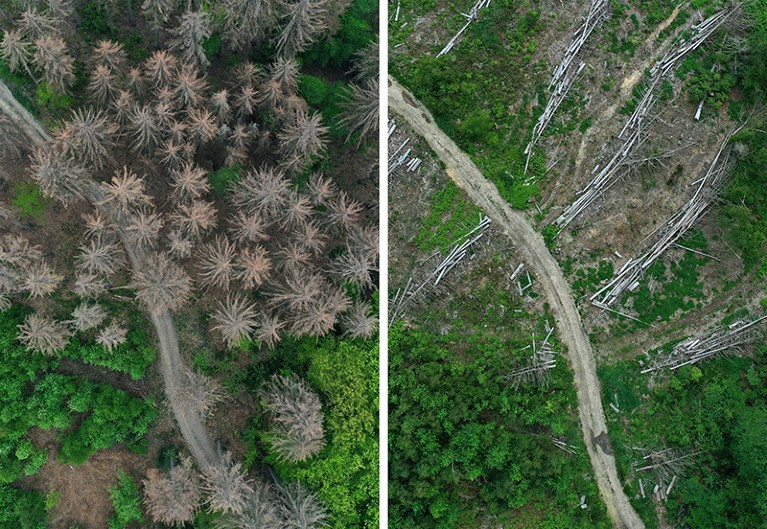New publication from Mahecha et al. in Nature: Biodiversity loss and climate extremes — study the feedbacks
As humans warm the planet, biodiversity is plummeting. These two global crises are connected in multiple ways. But the details of the intricate feedback loops between biodiversity decline and climate change are astonishingly under-studied.
It is well known that climate extremes such as droughts and heatwaves can have devastating impacts on ecosystems and, in turn, that degraded ecosystems have a reduced capacity to protect humanity against the social and physical impacts of such events. Yet only a few such relationships have been probed in detail. Even less well known is whether biodiversity-depleted ecosystems will also have a negative effect on climate, provoking or exacerbating weather extremes.
For us, a group of researchers living and working mainly in Central Europe, the wake-up call was the sequence of heatwaves of 2018, 2019 and 2022. It felt unreal to watch a floodplain forest suffer drought stress in Leipzig, Germany. Across Germany, more than 380,000 hectares of trees have now been damaged (see go.nature.com/3etrrnp; in German), and the forestry sector is struggling with how to plan restoration activities over the coming decades1. What could have protected these ecosystems against such extremes? And how will the resultant damage further impact our climate?
More details please read in: https://www.nature.com/articles/d41586-022-04152-y

Reference
Mahecha, M., Bastos, A., Bohn, F., Eisenhauer, N., Feilhauer, H., Hartmann, H., Hickler, T., Kalesse-Los, H., Migliavacca, M., Otto, F., Peng, J., Quaas, J., Tegen, I., Weigelt, A., Wendisch, M. and Wirth, C., Biodiversity loss and climate extremes — study the feedbacks. Nature 612, 30-32 (2022). https://doi.org/10.1038/d41586-022-04152-y



